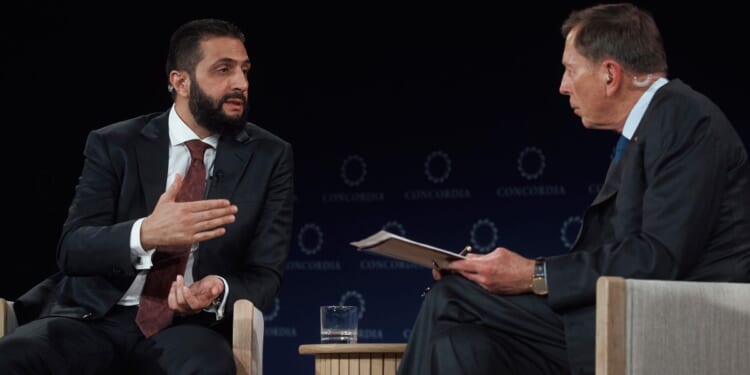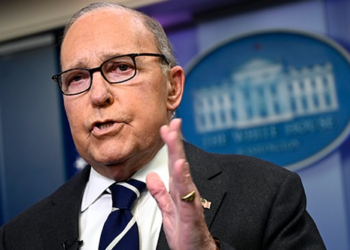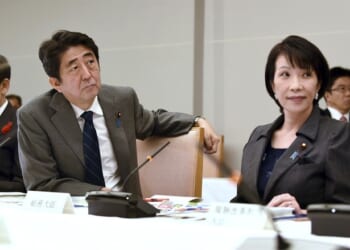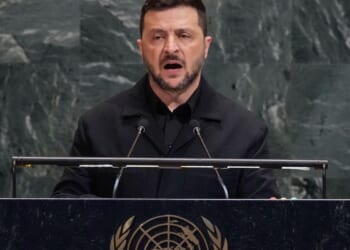
U.S.-based Syrian advocacy groups are urging Congress to scrap Caesar Act sanctions to fast-track Syria’s post-civil war recovery and foster close relations between Washington and Damascus.
Advocates say relief from the Assad-era sanctions could not come at a better time, as President Ahmed al-Sharaa prepares to meet with President Trump in Washington next week.
Pro-Syrians hope a productive meeting will convince skeptics in Congress that the Assad-era sanctions are outdated and unnecessary.
“President al-Sharaa’s outreach to Washington is a gesture of reconciliation and partnership, and a recognition that progress for Syria depends on dialogue, not distance,” Alia Natafgi, executive director of the Syrian American Alliance for Peace and Prosperity, told The Washington Times. “The fact that President al-Sharaa is engaging directly with the United States shows a willingness to reset relations for the benefit of both nations. It’s an opportunity for Washington to respond in kind — with policy that prioritizes stability and reconstruction over isolation.”
The Caesar Syria Civilian Protection Act, or the Caesar Act, passed in 2019 and imposed heavy sanctions on businesses, individuals and governments associated with the authoritarian government of Bashar Assad.
After Mr. Assad’s government was overthrown by a coalition of rebel forces in December, calls from the U.S. to remove the sanctions have grown louder.
Since returning to the White House in January, Mr. Trump has been outspoken in his desire to remove the Caesar sanctions, and the State Department issued a 180-day waiver on the restrictions in May. The waiver expires Nov. 19 and would require an act of Congress for the sanctions to end permanently.
Most of the Trump administration is reportedly united in favor of scrapping the Caesar sanctions. The State Department confirmed on Oct. 31 that it’s discussing the possibility of eliminating the sanctions through the National Defense Authorization Act.
The Treasury Department on Friday removed the Specially Designated Global Terrorist designation from Mr. al-Sharaa and his interior minister, Anas Khattab, ahead of their visit to Washington on Monday.
Sen. Lindsey Graham, South Carolina Republican, and Sen. Chris Van Hollen, Maryland Democrat, proposed an amendment to the NDAA that would conditionally lift the Caesar Act sanctions. In order for the amendment to pass, it needs approval from the chairs of the House Foreign Affairs Committee and other relevant panels.
The conditions include confirming that the Syrian government has “committed itself to the goal of eliminating the threat posed by ISIS,” providing security for ethnic and religious minorities, and maintaining peaceful relations with its neighbors, including Israel.
Some on Capitol Hill have expressed serious concerns over removing the sanctions with no strings attached, citing Mr. al-Sharaa’s Islamist past and his government’s failure to protect ethnic and religious minorities since the fall of Mr. Assad’s government.
Mr. Graham said removing the sanctions would be risky but maybe worth it.
“I’m willing to take a risk and reward good behavior,” he told The Times. “If we can get Syria pointed in our direction, it would be a great thing. But it has to be earned support. There are some pretty nefarious characters around this guy.”
Advocates for religious and ethnic minorities in Syria support removing the sanctions, but underscore conditions, citing violence committed against Alawite, Druze and Kurdish communities since Mr. al-Sharaa came to power.
Syrian government forces this year have fought Druze and Kurdish militia in what some human rights organizations have categorized as massacres. According to Amnesty International, clashes with the Alawite community in western Syria have killed nearly 1,500 people since December.
For Morhaf Ibrahim, president of the Alawites Association of the United States, Caesar sanctions aren’t the only obstacle to Syria’s recovery.
“Stopping the sanctions is not going to be the holy grail for the recovery of Syria,” Mr. Ibrahim told The Times. “We don’t think that the obstacle in terms of recovery is the sanctions. Actually, the obstacle is the behavior of the current regime, the continuation of killing, kidnapping happening almost every few weeks.”
The conditional part doesn’t sit right with all Syrian advocates, some of whom argue that the Caesar sanctions were meant to combat a specific authoritarian government.
“We want to see a repeal with no conditions whatsoever,” Suzanne Meriden, executive director of the Syrian American Council, said. “The Syrian people want a chance to breathe. They want to be able to have an economy where they can work and live and participate and have electricity and have freedom and just live life as free Syrians in a democratic country.”
Others say attaching conditions to sanctions removal, which could include a snapback mechanism if the al-Sharaa government does not comply with the peaceful measures, would deter international business interests from investing in Syria.
“American companies can’t do anything, because even the threat of snapback sanctions is a deal breaker,” Mouaz Moustafa, executive director of the Syrian Emergency Taskforce, said. “There are a ton of existing authorities, both within the executive branch, at the White House and for Congress to legislate their heart away on specific issues with specific sanctions pertaining to them. But to use Caesar for that is like using a sledgehammer instead of a scalpel.”
Continual or conditioned sanctions could also prove a roadblock to improving U.S.-Syrian relations as Mr. al-Sharaa courts a wide range of nations to assist in Damascus’ economic recovery.
He traveled to Moscow in October for a summit with Russian President Vladimir Putin. Russia supported the Assad regime, and he and his family have reportedly been living there since fleeing Syria in December.
Russia’s military investment in Syria over the years means that Moscow may maintain a foothold for the foreseeable future. But experts say that doesn’t mean Mr. al-Sharaa is interested in retreating from the West.
“My vision for al-Sharaa meeting Putin is not necessarily trying to distance himself from the Western alliance, but more so just balancing different interests. And also national security issues, because Russia has a military base in Tartus in Syria and most of the military equipment in Syria is Russian-supplied,” Muhammad Bakr Ghbeis, former president of Citizens for a Secure and Safe America, told The Times. “There is some sort of basic need for ongoing Russian engagement on some levels.”










